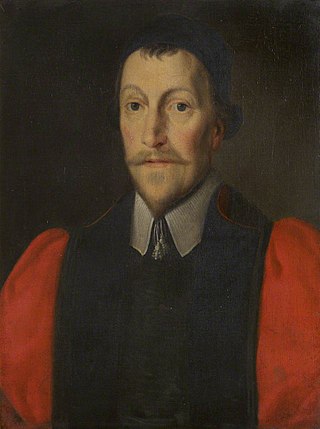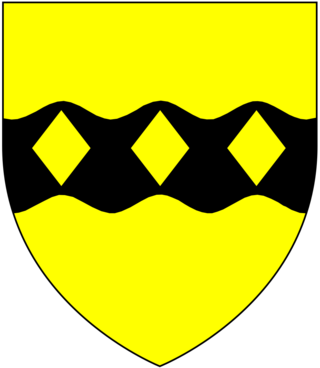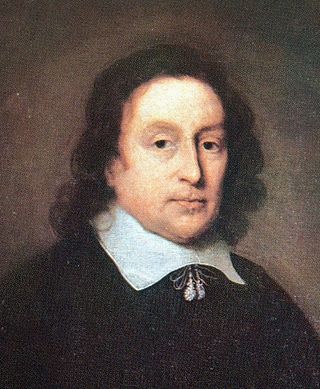Related Research Articles

Sir Walter Mildmay was a statesman who served as Chancellor of the Exchequer to Queen Elizabeth I, and founded Emmanuel College, Cambridge.

Sir John Bennet was a judge and politician who sat in the House of Commons between 1597 and 1621. His career ended in controversy after he was found guilty of extorting bribes and excessive fees.
Richard Vines was an English clergyman, one of the Presbyterian leaders of the Westminster Assembly. He became Master of Pembroke Hall, Cambridge, from 1644 to 1650.

Samuel Bolton was an English clergyman and scholar, a member of the Westminster Assembly and Master of Christ's College, Cambridge.
John Bond LL.D. (1612–1676) was an English jurist, Puritan clergyman, member of the Westminster Assembly, and Master of Trinity Hall, Cambridge.
Augustine Lindsell was an English classical scholar and Bishop of Hereford. In church matters he was advanced by Richard Neile, and was a firm supporter of William Laud. As a scholar he influenced Thomas Farnaby.
John Brinsley the Elder was an English schoolmaster, known for his educational works.
Francis Johnson was an English separatist, or Brownist, minister, pastor to an English exile congregation in the Netherlands.
Edward Dering was an English priest and academic, known as a classical scholar, controversialist, supporter of Thomas Cartwright, and fiery preacher against his fellow clergy. Constantly in trouble from 1570, he was not found to be nonconformist in doctrine, but was an opponent of the episcopate.
John Allin, or John Allin (1596–1671), was an English-born Puritan cleric and one of the patriarchs of New England associated with the foundation of Dedham, Massachusetts.

William Beale was an English royalist churchman, Master in turn of Jesus College, Cambridge and St John's College, Cambridge. He was subjected to intense attacks by John Pym from 1640, for an unpublished sermon he had given in 1635 supporting royal prerogative. According to Glenn Burgess, Pym's attention to Beale was because he exhibited a rare combination of Arminian or Laudian theological views with explicit political views tending to absolutism.
Richard Howland (1540–1600) was an English churchman and academic, Master of Magdalene College, Cambridge, and of St John's College, Cambridge, and bishop of Peterborough.

Arthur Duck, Doctor of Civil Law (LL.D.) was an English lawyer, author and Member of Parliament.
Thomas Bainbrigg D.D. (1636–1703), was an English Protestant controversialist.
William Whitaker (1629–1672) was an English Puritan ejected minister.
Edward Hawford D.D. was an English churchman and academic, Master of Christ's College, Cambridge from 1559. While Hawford was a somewhat conservative and administrative-minded academic politician head of house, no friend of religious enthusiasm and suspected of covert Catholicism. Christ's became a Puritan centre under his mastership.

Michael Honywood D.D. was an English churchman, Dean of Lincoln from 1660. Honywood was a bibliophile and he founded and funded the Lincoln Cathedral Library.
Jerome Beale was Master of Pembroke from 1619 to 1630; and Vice-Chancellor of the University of Cambridge in 1622 to 1623.
Thomas Braddock or Bradock was an Anglican clergyman of the 16th century, Headmaster of Reading School from 1588 to 1589 and a translator into Latin.
Reginald Bainbrigge, D.D. was an academic in the sixteenth century.
References
![]() This article incorporates text from a publication now in the public domain : "Bainbrigg, Thomas (d.1646)". Dictionary of National Biography . London: Smith, Elder & Co. 1885–1900.
This article incorporates text from a publication now in the public domain : "Bainbrigg, Thomas (d.1646)". Dictionary of National Biography . London: Smith, Elder & Co. 1885–1900.